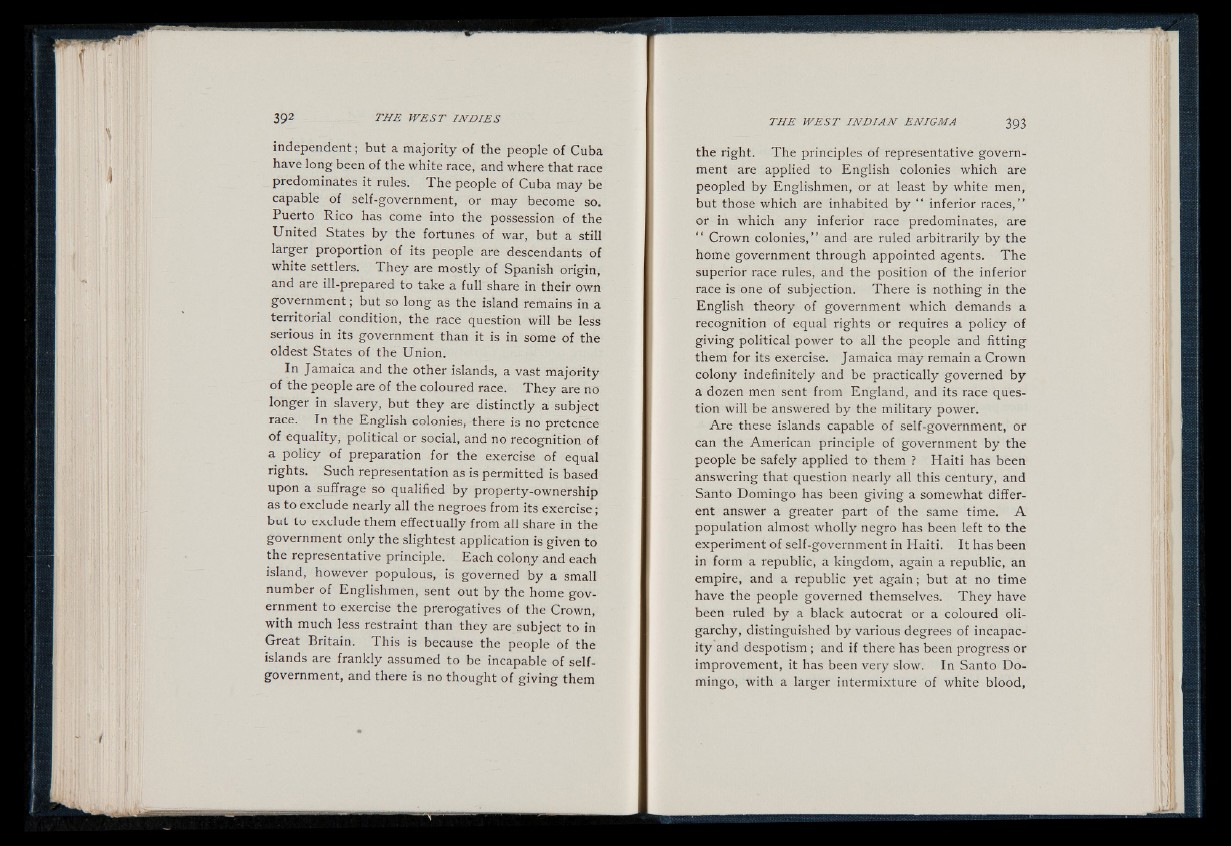
independent; but a majority of the people of Cuba
have long been of the white race, and where that race
predominates it rules. The people of Cuba may be
capable of self-government, or may become so.
Puerto Rico has come into the possession of the
United States by the fortunes of war, but a still
larger proportion of its people are descendants of
white settlers. T h e y are mostly of Spanish origin,
and are ill-prepared to take a full share in their own
government; but so long as the island remains in a
territorial condition, the race question will be less
serious in its government than it is in some of the
oldest States of the Union.
In Jamaica and the other islands, a vast majority
of the people are of the coloured race. T hey are no
longer in slavery, but they are distinctly a subject
race. In the English colonies, there is no pretence
of equality, political or social, and no recognition of
a policy of preparation for the exercise of equal
rights. Such representation as is permitted is based
upon a suffrage so qualified by property-ownership
as to exclude nearly all the negroes from its exercise;
but to exclude them effectually from all share in the
government only the slightest application is given to
the representative principle. Each colony and each
island, however populous, is governed by a small
number of Englishmen, sent out by the home government
to exercise the prerogatives of the Crown,
with much less restraint than they are subject to in
Great Britain. This is because the people of the
islands are frankly assumed to be incapable of self-
government, and there is no thought of giving them
the right. The principles of representative government
are applied to English colonies which are
peopled by Englishmen, or at least by white men,
but those which are inhabited by “ inferior races,”
or in which any inferior race predominates, are
” Crown colonies,” and are ruled arbitrarily by the
home government through appointed agents. T he
superior race rules, and the position of the inferior
race is one of subjection. There is nothing in the
English theory of government which demands a
recognition of equal rights or requires a policy of
giving political power to all the people and fitting
them for its exercise. Jamaica may remain a Crown
colony indefinitely and be practically governed by
a dozen men sent from England, and its race question
will be answered by the military power.
Are these islands capable of self-government, or
can the American principle of government by the
people be safely applied to them ? Haiti has been
answering that question nearly all this century, and
Santo Domingo has been giving a somewhat different
answer a greater part of the same time. A
population almost wholly negro has been left to the
experiment of self-government in Haiti. It has been
in form a republic, a kingdom, again a republic, an
empire, and a republic y et a g a in ; but at no time
have the people governed themselves. T h e y have
been ruled by a black autocrat or a coloured oligarchy,
distinguished by various degrees of incapacity
and despotism; and if there has been progress or
improvement, it has been very slow. In Santo D o mingo,
with a larger intermixture of white blood,